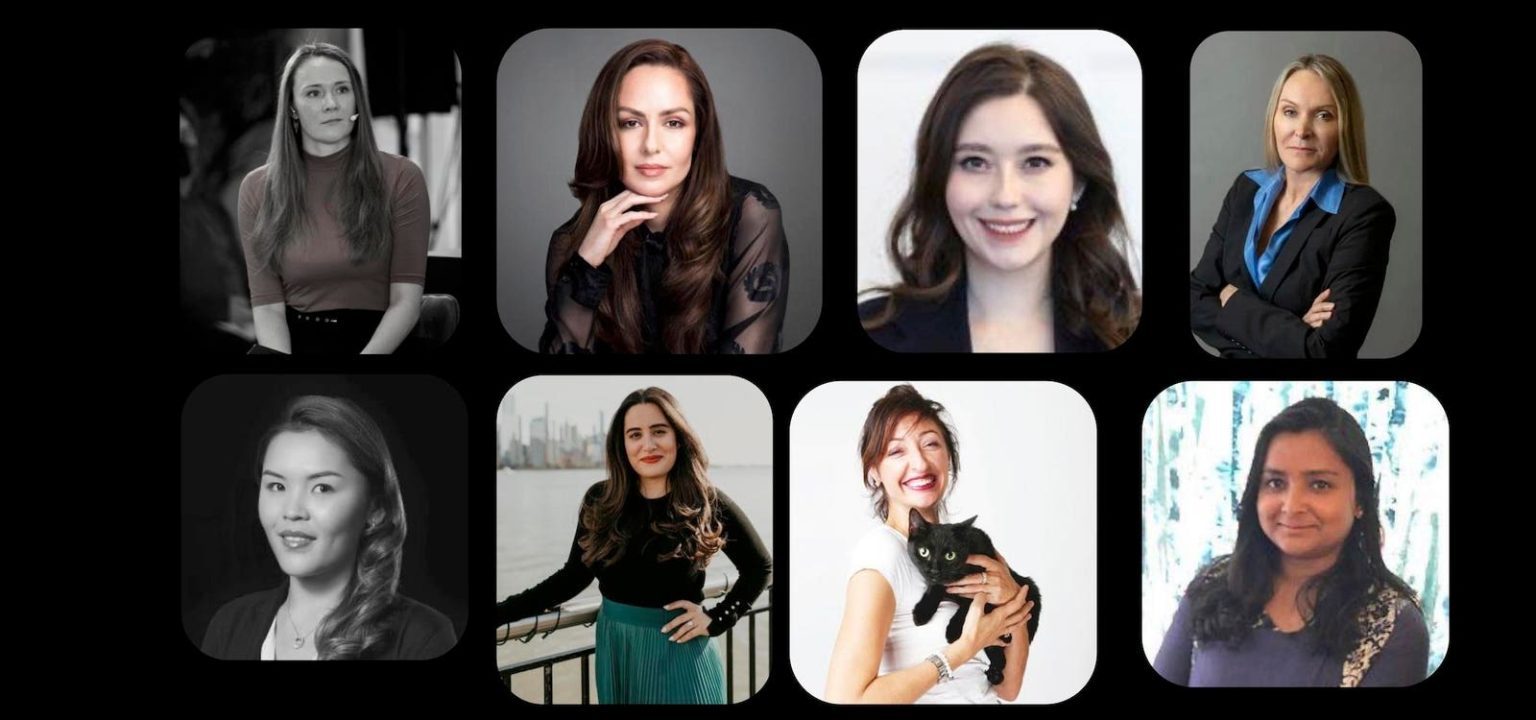The field of longevity biotechnology is rapidly evolving. Just 20 years ago, it was difficult to find a credible book on aging research and there were very few companies developing drugs or other interventions targeting the fundamental aging processes. Today, it is a vibrant field with abundant freely-accessible educational resources, books, conferences, and even industry associations. The largest longevity biotechnology conference in the world is the Aging Research and Drug Discovery conference in Copenhagen, a five-day event organized by the University of Copenhagen where the highest-profile scientists get to present their work alongside dozens of leading biotechnology startups, big pharmaceutical companies, and venture capitalists. According to the stats from 2020 only about 40% of the delegates at the ARDD were women. And while the many areas of science have even greater gender imbalance and several of the most successful longevity biotechnology companies, longevity venture funds, and longevity medicine groups are led by women, there is a clear gap. Extending the human lifespan requires a renewed focus on health equality.
What industries make up the longevity space? It depends on who you ask. There are the obvious ones: pharmaceuticals, biotech, and research. But, the working definition is much broader. Mental health, diagnostics and infrastructure all support the anti-ageing field. Women’s health areas like gynaecology and menopause are also essential. Longer lives must also be healthier ones.
Building a balanced longevity industry requires external support. Profitable companies like Pfizer participate, but visionary startups and founders also need backing. Venture capital firms and angel investor funding directly influence the industry’s direction. They have a tremendous responsibility to identify promising companies and resilient teams.
Part of this responsibility is ensuring representation—everyone ages. Longevity is a cause that affects us all. The newly-launched Sheba Longevity Clinic has menopause as a core focus area. Gender influences how we age, and running non-diverse studies or launching companies with limited leadership diversity is a disservice to the industry.
Modern healthcare still lacks true gender equality, especially for patients. Debilitating reproductive diseases like endometriosis can take upwards of seven years to diagnose. Despite having higher disease incidence rates, women with dementia receive less regular health monitoring and even take more harmful medication than their male counterparts. The longevity industry has a unique opportunity to set strong precedents for health equality.
Garri Zmudze is a longtime colleague who founded LongeVC several years ago. He’s an accomplished investor, founder, and advisor. I joined Garri to ask some questions about the value of women in longevity, where he sees the future of longevity investing, and why diversity in longevity matters.
Alex: Garri, it is great to speak to you and share more about your work. We’ve known each other for many years, but would you mind introducing yourself and your journey into the longevity space?
Garri Zmudze: It is always great to speak with you, Alex. I’m excited about the longevity field’s recent growth and public attention.
I’m personally interested in longevity due to family connections. Unfortunately, like many people worldwide, my family members have been affected by age-related diseases. I believe in a future where scientists have effective and accessible treatments. We all deserve more years with our loved ones.
Upon entering the early longevity space, I soon recognised that there was a lot of buzz but limited action. People were excited about something as impactful as longer lives. But fewer individuals focused on the resources needed to make this possible. It was time for something new, and we founded LongeVC in 2016 to lead the longevity revolution. Our goal was simple: support founders and make our lives longer and healthier.
I’m also proud to have played a role in founding several other organizations dedicated to advancing longevity research and innovation. Longenesis is a startup using SaaS tools to engage patients and share data for clinical trials. They’ve received several international awards at startup competitions. More recently, I co-founded the Longevity Science Foundation, a global nonprofit funding research on extending the human lifespan. Both organisations advance the longevity sector with better trial data and funding options. I advise the Healthy Longevity Medicine Society, an organisation developing standards and collaboration opportunities for longevity physicians.
Since I entered the space many years ago, I have met countless inspiring women. I truly believe they are shaping the field to be more inclusive and future-proof.
Alex: Could you give an overview of the importance of longevity investing and where women’s health comes in?
Garri Zmudze: In the longevity industry, years of pseudoscience-related claims about superfoods made people either confused or sceptical. Better education and a reputational makeover were needed. Investors were building the industry. Ten years ago, there were few active longevity-focused funds. The first builders soon realised the value of investing in people, looking for founders that could perform under pressure and be part of an industry-wide transformation. Longevity VCs are important for the ecosystem. They lead critical discussions on longevity and back visionary companies.
Three essential investment articles are therapeutics, diagnostics and prevention, and longevity infrastructure. Therapeutics is the most specific category. It includes companies focusing on treatments for the molecular components of ageing. Diagnostics and prevention are also essential for longer and healthier lives. By detecting devastating diseases earlier, we prevent unnecessary deaths. Finally, longevity infrastructure builds the industry’s foundation. It incorporates technological breakthroughs like medical devices and ML and analytics platforms.
Women’s health needs to be part of the longevity investing conversation. There are already striking patterns if you look at the top ten causes of death for men and women. Both men and women have heart disease and cancer as the leading causes. However, men suffer more from unintentional injuries and death by suicide, while women have higher rates of Alzheimer’s disease and kidney disease. It’s a similar story with cancer too. Men face prostate cancer and melanomas more often than women with breast and uterine cancer. Investing in one or the other leaves out an entire group.
Alex: What are some women-led companies of which the industry should be aware?
Garri Zmudze: Definitely! As I mentioned, many fantastic women are leading longevity companies, including ones supported by LongeVC. I will share a brief outline of them below.
AOA Dx: AOA Dx is developing a liquid biopsy test for early ovarian cancer detection. Led by CEO Oriana Papin-Zoghbi, AOA’s AI-backed technology will save lives from a disease where early detection is essential. Oriana is an Inc 2022 Top 100 Female Founder and a member of the Young Entrepreneurs Council. AOA has launched its first clinical trials, with exciting updates in the next few months.
Longenesis: Longenesis deploys SaaS solutions for clinical trial patient engagement and data sharing. Agnese Veckalne manages its operations as COO. Besides her commendable work at Longenesis, she chairs the Latvian Startup Association. With Agnese’s guidance, Longenesis has supported studies on medical devices for diabetes patients and long COVID in children, among many others.
Freedom Biosciences: Dina Burkitbayeva leads next-generation mental health startup Freedom Biosciences. She co-founded the company with John Krystal, one of the original ketamine mental health researchers. Freedom Bio will improve mental health treatment accessibility. The San Francisco Business Times recently recognised the company as a top women-led life sciences startup. They especially celebrated its 50% women team.
Turn Biotechnologies: Turn Biotechnologies is pioneering mRNA medicines for anti-ageing. Anja Krammer is at the helm, supporting the Stanford University spinout to raise successful rounds. WIRED, the BBC and the New York Times have covered Turn Bio’s stem cell therapy progress.
Marble Therapeutics: Denitsa Milanova is shaping skin ageing as CEO of Marble Therapeutics. You spoke with Denitsa earlier about her journey from Harvard to attracting backers like Tony Robbins. Marble applies advanced data analytics to rejuvenate our skin. Its work will transform how we approach anti-ageing.
Melio: Melio offers a better way to detect and diagnose pathogens. Steered by CEO Mridu Sinha, the company is reducing antibiotic over-prescription. Its work mainly benefits vulnerable infants. Melio’s approach represents the future of infection detection, and Mridu is leading the charge.
Basepaws: Basepaws provides genetic-based health insights for feline friends. Founded by Anna Skaya in 2017, its at-home screening tests help pet owners prevent and predict diseases, giving more happy years with their animals. Anna fearlessly led Basepaws to achieve national recognition, including appearing on the hit show Shark Tank. Her hard work led animal health company Zoetis to acquire Basepaws in 2022.
Haut.AI: Haut.AI uses AI to make personalised body care recommendations. You know its founder, Anastasia Georgievskaya, from your earlier work together. Users snap a selfie to receive AI-generated product recommendations. Anastasia and the Haut.AI team just launched SkinGPT, a new way to “try on” skincare with generative AI.
It’s a top-notch group of visionary women. Their leadership drives a better future for the longevity industry.
Alex: Why does investing in women-led longevity matter for the industry?
All industries benefit from diverse perspectives. Longevity should reflect the needs of different demographics–age, gender, social class and more. Today’s healthcare system struggles with biases. Future healthcare systems must overcome them. The best way to accomplish this is by uplifting diverse leadership. Leaders know community differences from their firsthand experiences. We want to support them in addressing and overcoming these differences in their work.
It’s important to look carefully at resilience and founder potential when evaluating portfolio companies. We know that traditionally excluded groups deserve a place at the table. However, they face difficulties securing funding from outdated and unfair investment bodies. Longevity investors should move past this and offer funding to everyone deserving, no matter their background. I aim to start a revolution in longevity funding that will reach other fields.
What advice would you give to women interested in longevity?
Garri Zmudze: I want to start by expressing my gratitude to the women of longevity. It has been a pleasure learning from and advising so many bright minds. My advice is simple: keep doing what you are doing. The industry needs to catch up to your brilliance. I look forward to more accelerators and fellowships specifically for women in longevity. Your series, Alex, does an outstanding job of telling their stories.
For founders, I strongly recommend connecting with your investors for new opportunities. At LongeVC, for example, we strive to build a community of knowledge-sharing and mutual support. Many VCs take this approach. It’s always helpful to speak with someone who has been in your shoes. It can be daunting to approach an emerging field, but the industry wants to see sector-wide success. Established individuals are great to reach out to for a potential mentorship.
There is plenty of room for passionate and driven women at the longevity table. All are welcome in the longevity community, whether unicorn CEO, new startup founder, ambitious student, or curious investor.
Meet the Longevity Innovators at the 10th Aging Research and Drug Discovery Meeting in Copenhagen
In 2023, the 10th Aging Research and Drug Discovery meeting will transpire in Copenhagen at the campus of the University of Copenhagen curated by expert chairs, Morten Scheibye-Knudsen, MD, PhD, and Daniela Bakula, PhD. Several of the female-led startups mentioned in this story and LongeVC will be represented at the event. Several rising stars still in their teens will also present their research including Andrea Olsen, the head of the Youth Longevity Association (TYLA) will present her research in common targets implicated in aging and glioblastoma. The organizers strive to increase the level of diversity for both speakers and delegates and invite everyone to participate.
Read the full article here





